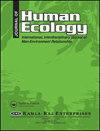保护农民工免受失业导致的贫困:非正式的刺梨市场
Q4 Environmental Science
引用次数: 1
摘要
摘要本研究以纳尔逊·曼德拉湾市(NMBM)的非正式刺梨市场为例,强调了非正规市场在保护城市地区失业的农村移民免受失业引发的贫困方面所起的作用。这项研究的目的是展示自营职业或非正规就业的收入如何有效地减少贫困。可持续生计框架被用作分析影响非正规刺梨营销人员参与市场决策的家庭社会经济因素的理论基础。研究发现,尽管刺梨的供应时间很短,但除了社会补助金外,收入在当月还被用于学校用品和维持家庭生计,尤其是在补助金收入结束后。这项研究旨在恢复人们对仙人掌物种的兴趣,这是东开普省减少贫困的方法之一。本文章由计算机程序翻译,如有差异,请以英文原文为准。
Shielding Rural Migrants from Unemployment-Induced Poverty: The Informal Prickly Pear Market
ABSTRACT This study highlighted the role that an informal market plays in shielding unemployed rural migrants in urban areas from unemployment-induced poverty using the Nelson Mandela Bay Municipality (NMBM) informal Prickly Pear Market as a case study. The purpose of this study was to show how earnings from self-employment or informal employment can be effective in reducing poverty. The Sustainable Livelihoods Framework was used as the theoretical basis for unpacking the household socioeconomic factors that influenced the informal prickly pear marketers’ decision to engage in the market. The study found that despite the prickly pear’s short-term availability, the income was channelled towards school supplies and sustained households during the month in addition to social grants, especially after the grant income had finished. The study aimed to revive interest in the Opuntia ficus-indica species, as one of the ways by which poverty can be reduced in the Eastern Cape.
求助全文
通过发布文献求助,成功后即可免费获取论文全文。
去求助
来源期刊

Journal of Human Ecology
Environmental Science-Ecology
自引率
0.00%
发文量
14
期刊介绍:
The Journal of Human Ecology publishes empirical and theoretical research, short notes and brief communications probing the interface between human beings and their environment. The journal also has a section dedicated to reviews. The contributions combine ideas and methods from several disciplines, including, but not confined to, physical anthropology, health awareness, sustainability and development, sociology, forestry, psychology and agriculture. The journal also accepts research that focuses on the well-being of those with physical or mental challenges, the importance of food safety, measures taken to improve public health, and the sociological aspect of human ecology.
 求助内容:
求助内容: 应助结果提醒方式:
应助结果提醒方式:


